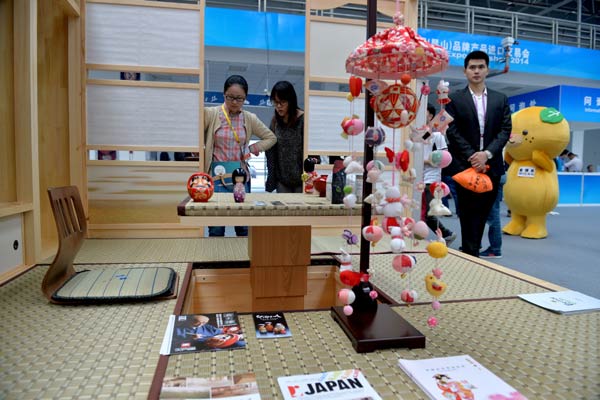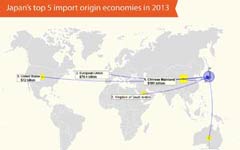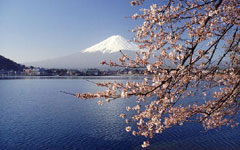 |
|
Visitors show an interest in a Japanese tatami room display at an expo in Kunshan, Jiangsu province. Despite chilly relations, trade between China and Japan expanded 3.2 percent in June. [Photo/Xinhua] |
Political turmoil, rising costs send inflows into 49% drop in first half
Japan's direct investment in China declined significantly in the first half of this year as ties between Asia's top two economies remained under stress.
Rising costs in China also played a part in the dramatic drop of Japanese investment, experts said.
Between January and June, FDI from Japan slumped 48.8 percent year-on-year to $2.4 billion, the Ministry of Commerce said in Beijing on Tuesday.
Bilateral relations deteriorated after Japan announced a decision to "nationalize" China's Diaoyu Islands in the East China Sea in September 2012. And the situation worsened amid a controversy over Japanese Prime Minister Shinzo Abe's visit to the Yasukuni Shrine in December last year.
|
 |
 |
Zhang Jifeng, director of the Japanese economy department at the Institute of Japan Studies, a division of the Chinese Academy of Social Sciences, said the continued icy relationship "accounted for the largest stake" in the plunge of Japanese investment in China.
The slowing Chinese economy and rising labor costs are not helping matters, but it's the political climate that has entrepreneurs worried, he said.
"Entrepreneurs are still waiting and watching ... They're profoundly aware of the connection between the political climate and their commercial performance (in China). They don't want to put their assets at risk," Zhang said.
Japan's Kyodo News Agency said in a commentary that small and medium-sized businesses in Japan have been abandoning plans to explore the Chinese market out of concern about the worsening relationship.
Meanwhile, labor costs in coastal China have increased 10 to 20 percent each year, diminishing the country's appeal, the agency said.
Jin Baisong, an expert at the Chinese Academy of International Trade and Economic Cooperation, said that given the huge pressure of public opinion, bilateral economic ties are "unlikely to proceed smoothly while the big picture is so negative".
Jin said: "It is impossible for two major powers to forge a relationship that solely consists of economic contacts. (Problems) in the political arena definitely will trigger a spillover effect in the economic domain. It's just a matter of time."
